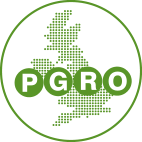Practice Abstract 67 - Good practices and recommendations on prospective policy measures – UNIBO - parth.chatzinikolao2@unibo.it
Short title (native language):
Good practices and recommendations on prospective policy measures – UNIBO - parth.chatzinikolao2@unibo.it
Short summary for practitioners (native language):
Feed & food demand offers opportunities for EU legume production, but big challenges are faced; perceived lack of economic competitiveness; production knowledge; awareness of benefits to subsequent crops and soil health; deficient knowledge exchange; demand for local production legumes needs stimulating.
National expert workshops identified good practices and prospective policy measures for incentivizing legume production. Feedback was gathered regarding CAP, EU Strategy for Protein Crops, Farm to Fork Strategy and EU Biodiversity Strategy.
Absence of a dedicated EU level legume policy characterizes the situation and yet legumes are affected by several policy measures, mostly dedicated to more general aims, such as crop diversification or promotion of organic farming.
Workshops identified that policy should focus on the development and strength of legumes value chains rather than production support with supply side payments. Innovation is critical, to provide higher technical efficiency & competitiveness for legume crops. A high degree of international heterogeneity was revealed, with different policy focuses and varied degrees of interaction throughout the value chain.
It is strategically desirable to coordinate instruments among the main policy tools, to allow appropriate and consistent policy to boost EU legume production. Strategic policy reflecting regional needs and the added value of integrated legume value chains will be important. Coordination of all policy instruments is vital. Specific instruments are identified, including promotion of public procurement, producers’ organization, market information for companies and targeted support for the environmental benefits linked to legume cultivation.



